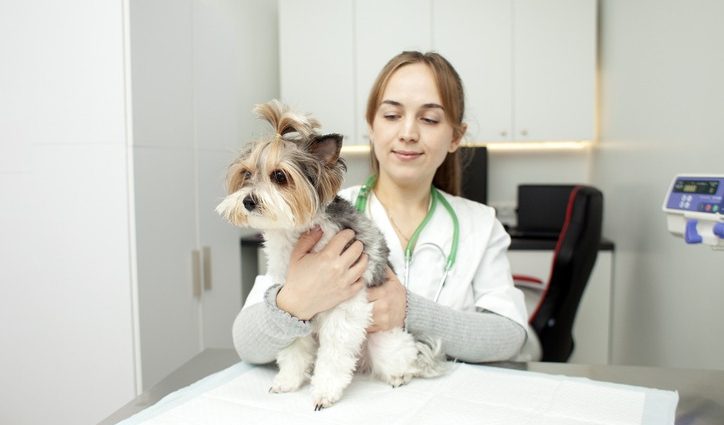As a pet owner, keeping your furry family member healthy and happy is a top priority. Annual check-ups at the vet play a crucial role in ensuring your pet is thriving. But when you’re sitting in the waiting room, have you ever wondered which tests are necessary for your pet’s annual visit? We’re here to shed some light on the essentials so you can be better informed and prepared for your next vet appointment.
Understanding the Basics of Pet Health Exams
Before we dive into the specifics, let’s lay the groundwork by understanding what a standard pet check-up might look like. Typically, a vet will conduct a thorough physical exam, which includes feeling your pet’s abdomen, checking their legs and joints, examining their eyes, ears, and mouth, and listening to their heart and lungs.
This hands-on approach helps veterinarians detect any abnormalities that may point to underlying health issues.
The Role of Preventive Measures
Preventive care is a huge part of keeping your pet healthy. Yearly exams are opportunities for your vet to assess your pet’s overall health and to catch any issues early on. It’s also a chance to update any necessary preventive treatments, like deworming or flea control.
Pet Vital Checks and Lab Tests
Now, break down the crucial must-have tests during your pet’s annual vet visit.
-
Complete Blood Count (CBC): This blood test checks red and white blood cells and can highlight infections, anemia, and other diseases.
-
Biochemistry Profile: This test gives insights into organ function and can uncover conditions like liver disease, kidney problems, or diabetes.
-
Urinalysis: By examining your pet’s urine, a vet can detect various issues, from urinary tract infections to kidney disease.
-
Fecal Exam: Essential for checking for internal parasites, which are more common than you might think, even in well-cared-for pets.
Customized Based on Lifestyle and Age
We also have to consider that not all pets are the same. The need for specific tests can vary based on your pet’s lifestyle, age, and breed. For example, a senior pet might require frequent blood tests to monitor ongoing conditions, while an outdoor cat might need additional parasite screenings.
Dog & Cat Vet Check
When it comes specifically to caring cat health examinations, our feline friends deserve a tailored approach. Cats are notorious for hiding illness, so regular vet visits are critical for early detection and management of their health. On the other hand, dogs often show more obvious signs of discomfort or illness. Still, they also benefit from regular health screenings to check for breed-specific issues and preventative care advice.
The Importance of Heartworm and Tick-Borne Disease Testing
A key test for many pets, particularly dogs, is checking for heartworm and other tick-borne diseases. These tests can save your pet from severe health complications. Depending on where you live, your vet might recommend this test more than once a year due to the prevalence of these diseases in certain areas.
Pet Vaccinations
Moving onto immunizations, kitten vaccinations for early immunity are crucial. These shots protect your kittens from common and potentially severe diseases. Each vaccination visit is also an opportunity for your vet to examine your kitten’s health. As for adult pets, vaccines are updated based on age, health, and exposure risks, so your annual visit is an optimal time to assess which vaccines are needed.
Thyroid Function and Other Endocrine Tests
Especially in middle-aged to older pets, thyroid and other endocrine function tests are essential. They help detect disorders like hyperthyroidism or hypothyroidism, which can have significant effects on your pet’s health and well-being if left untreated.
Pet Dental Exams
Sometimes, we might overlook our pet’s dental health, but it’s as essential as any other aspect of their well-being. An annual dental exam can spot problems before they become serious, and your vet can guide you on home dental care steps and signs of dental disease to watch for.
Dental Health Care
When it comes to dental procedures, if you need to choose the best animal hospital in Redondo Beach, look for places that offer comprehensive dental services, from routine cleanings to more advanced treatments like extractions or oral surgery. Oral health impacts overall health, so don’t skimp on dental care!
Nutritional Counseling and Weight Management
A significant part of a check-up is discussing your pet’s diet and weight. Overweight pets can suffer from joint issues, diabetes, and other health problems. The vet can provide personalized nutritional counseling based on your pet’s age, breed, and lifestyle to help you manage your weight effectively.
Skin and Coat Analysis
We shouldn’t forget about our pet’s skin and coat, as they can give clues to underlying health issues. Parasites, allergies, and hormonal imbalances often manifest through skin and fur, so your vet will check for abnormalities.
Concluding Thoughts
After all, an annual check-up is an investment in your pet’s health and longevity. The tests we’ve discussed today are the backbone of a good health regimen, helping us catch potential problems early and keeping our beloved companions by our side for as long as possible.
Remember, you know your pet best. Don’t hesitate to contact your vet if you notice any unusual behavior or symptoms between regular visits. The goal is not just to treat illness but to prevent it and maintain our pets’ highest quality of life. So here’s to happy, healthy furry friends and a smooth annual vet check-up.

